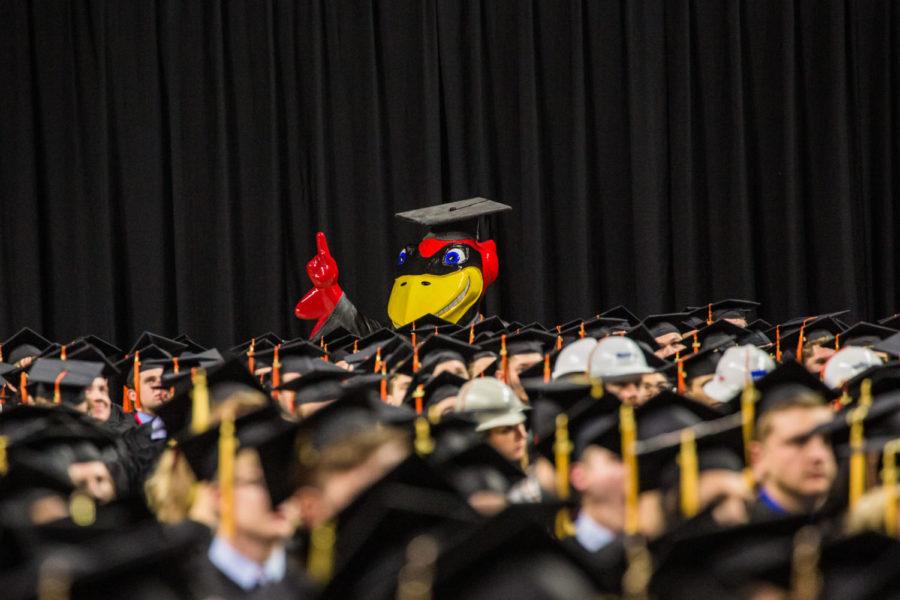ReHashing Gay Bashing
January 11, 2000
Etch this into your memory because it’s going to be the last you’ll hear of this if Al Gore or Bill Bradley become president: The “don’t ask, don’t tell” policy won’t be around much longer.
In an age when everything seems to be going well, a soldier at Fort Campbell was murdered because he was suspected of being gay. He affirmed that he was in fact not gay and despite this, Pfc. Calvin Glover’s hatred of gays drove him to take a bat to Barry Winchell.
Worst of all, the Army did nothing to curb the harassment Winchell endured for four months before his death.
At Glover’s trial, Staff Sgt. Michael Kleifgen, Winchell’s platoon sergeant said, “Everybody was having fun,” referring to the attacks on Winchell during his stay at Fort Campbell.
Gore and Bradley want to get rid of the “don’t ask, don’t tell” policy and openly accept homosexuals, but that won’t happen if officers turn a blind eye to soldiers who don’t conform. That’s the “Army” way: If it makes the Army look bad, ignore it and forget it.
In Saturday’s Des Moines Register debate, former Sen. Bradley stated, “As commander in chief, I can trust soldiers to be soldiers.” That ignorant realization cost a mother and father their son and the Army its credibility.
According to the Servicemembers Legal Defense Network, anti-gay incidents against service members increased 120 percent in 1997.
In death, it seems Winchell had suffered more than just a brutal murder; he was betrayed by the very men who asked him to put his life on the line.
The “don’t ask, don’t tell” policy is just another social experiment by left-wingers. If elected, Gore and Bradley should stick to their ideas and implement full acceptance of gays in the military. Above all, they should protect those who can’t defend themselves, including soldiers such as Barry Winchell.
GOP hopeful Alan Keyes said that with the military “what you see is what you get.” Considering that, we have to assume the 120 percent rise signifies the policy is ineffective.
If ineffective, gays shouldn’t serve. There are no standards in place to protect them as evidenced by the Army’s lack of control over its soldiers.
The current policy not only begs reform, but this question: What are we doing to educate our young soldiers about bigotry and hatred? Obviously, nothing.
If so, gay incident reports would be falling rather than rising. Sharp criticism from anti-gay groups state that gays aren’t family-oriented and are in direct contrast to the moral majority.
The moral majority should be properly classified as mob majority. The Christian values they espouse are in fact not Christian and are based on maintaining their view of social stability. Anything deviating from this course is blasphemous.
In an age of “understanding” and “compassion,” the truth is that we don’t like gays. It’s that simple. They stand against everything the majority of Americans stands for. They don’t have normal families — at least as defined by what average Americans define as ordinary. Gays want to destroy the notion of the family.
Still, despite all the false rumors spread around by people, homosexuals are citizens and should be treated as such. To do otherwise not only defies “normal Christian” values but sends the message that moral America perhaps isn’t as understanding as it claims to be.
The tragic part is Winchell was a good soldier at the top of his unit, the best marksmen and an exemplary leader. His downfall was that someone thought he was gay and that alone warranted his death.
Until soldiers can serve openly without fear of reprisal or lynching, how can we tolerate the “don’t ask, don’t tell” policy? Sure, within the letter of the law it may be legal. But our standards define who we are and what we stand for. Open the ranks and let soldiers stand on their merits.
If they can’t hack it, toss them out. It’s that simple. But if the institution is biased from the beginning, how can we expect our soldiers to do the right thing in times of crisis? These soldiers need a strong, family-oriented leader. If our president and his policy can’t live up to the expectations, how can our soldiers?
Andy Gonzales is a junior in political science from El Paso, Texas.






